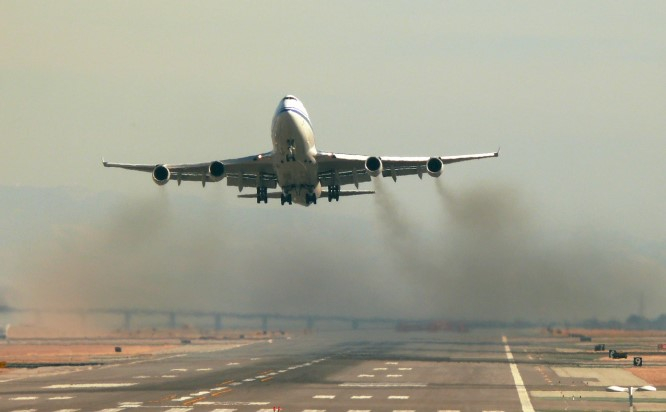Boosting train traveling instead of air-flights may result in lesser pollution on short-haul flights, GREENPEACE called on European governments. This could be a great step towards climate change and play a significant role while the Cop26 summit is almost about to happen.
They urge to ban short flights on routes where a train journey under six hours is available, in a sign of growing pressure on governments to take bolder steps to avert climate disaster.
A study published by OBC Europa shows, ahead of the global Cop26 summit that opens in Glasgow on 31st October, the charity found that 34 percent of the 150 busiest short-haul flights have rail alternatives that emit a fraction of the carbon dioxide.
The study says that Madrid-Barcelona, Frankfurt-Berlin, and Brussels-Amsterdam routes could be covered by train in two to four hours. Though flights take around two-and-a-half hours, when travel to and waiting in airports is factored in, the rail route is almost as fast.
‘Europe could replace almost all of the top 250 short-haul flights and save some 23.4 million tons of CO2 per year, as much as the annual CO2 emissions of Croatia,’ Greenpeace said.
China had rolled out the world’s most extensive high-speed rail network from the early 2000s, yet has made a record of a significant drop in domestic aviation on affected routes despite continued economic growth.
The dedicated high-speed track between Beijing and Shanghai is the signature route titled the “world’s fastest passenger train,” covering the 819 miles in four hours 18 minutes at speeds of up to 217 miles per hour.
A 2017 study by Chen Zhenhua found a decrease in domestic flight passengers of 28.2 percent and a 24.6 percent reduction in flights themselves following the introduction of high-speed rail routes between destinations, with the most significant impact on journeys of 500-800 km.
The Wuhan-Guangzhou line caused a 45% decline in air travel between 2001 and 2014, while the Beijing-Shanghai line prompted a 34% drop.

